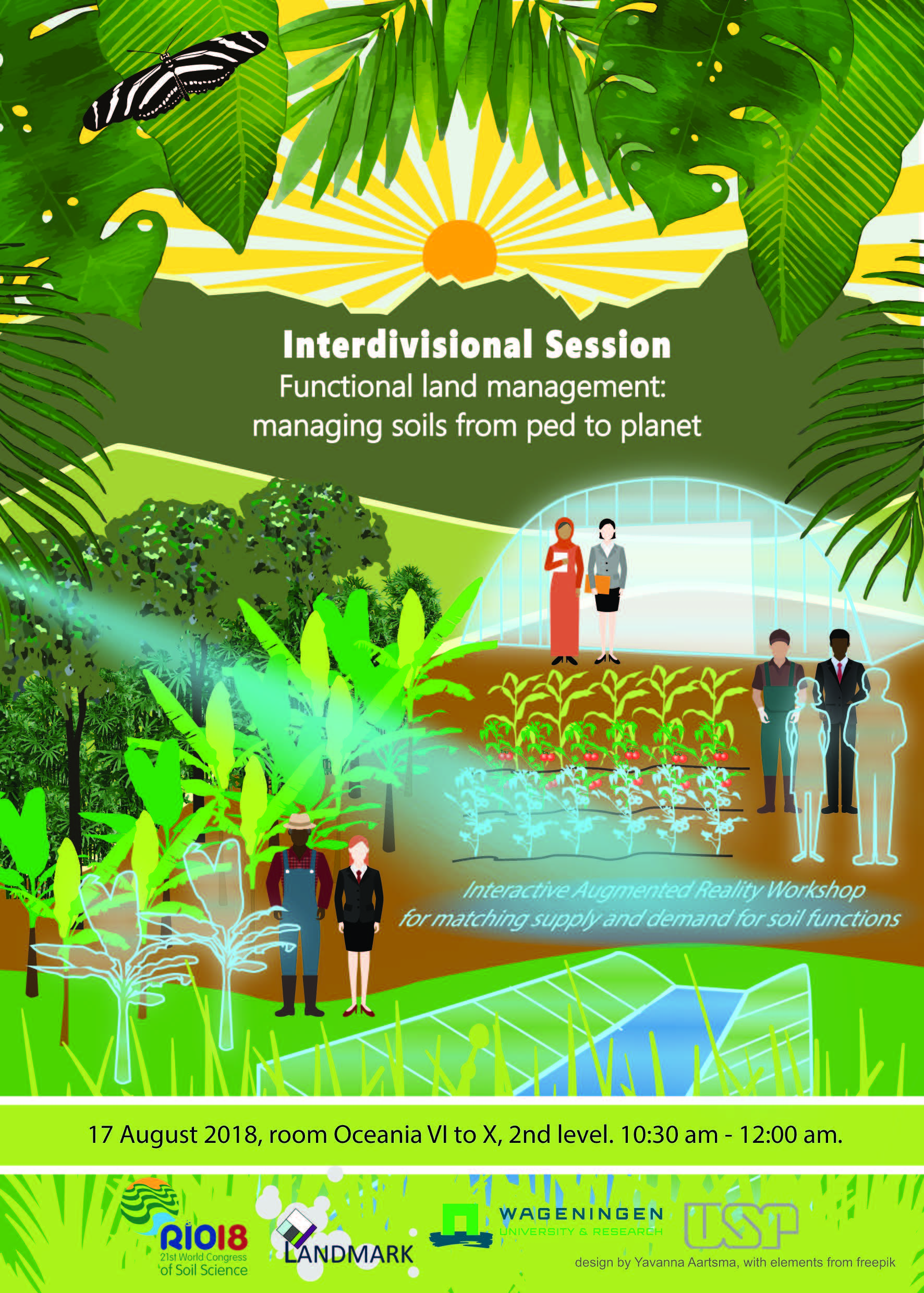The LANDMARK project team will participate with a interactive augmented reality workshop to the 21st World Congress of Soil Science – Soil Science beyond food and fuel held this year in Rio de Janeiro, Brazil from 12-17th of August 2018.
On the Friday 17th of august at 10.30 am look for our Inter-Divisional session part of Division1 on Functional Land Management – managing soils from ped to planet in room Oceania VI to X, 2nd level

Conveners: Rogier Schulte (WUR) and Erika Micheli (Szent Istvan University)
Agenda
– Integrating land use planning and water governance in Brazil by Prof. Victoria Ballester (University of São Paolo)
– Interactive Augmented Reality Workshop for Matching Supply and Demand for Soil Functions moderated by Prof. Rogier Schulte (Wageningen University and Research)
Is the world big enough? We are witnessing a rapid increase in the global demands on how we use the land of our planet. The FAO estimates that we require a 60% increase in food production by 2050 to achieve food security. The Paris Climate Agreement assigns high expectations on soils to sequester carbon to limit global warming to well below 2ºC. The Sustainable Development Goals aim for the sustainable management of water for all, for a halt to the decline of biodiversity and for the sustainable management of waste from our cities. The questions that are now emerging at the top of the policy agenda are: is it possible to meet all these demands simultaneously in a context of a declining resource base? And, if so, how should we manage our land accordingly?
Soil science has produced a wealth of knowledge at a range of spatial scales, from laboratory studies to global assessments, on the relationships between soil properties, soil management and soil processes. The urgent need to address the global pressure on land resources now requires us to harness this knowledge and put it to use to manage soils from ped to planet. Functional Land Management is a policy framework that allows soils to meet the demands for soil-based ecosystem services at multiple scales, for example from the provision of clean water at local scale to the provision of food at regional scale and the mitigation of climate change at global scale.
But who decides on how the world’s land is managed? Governments chart agricultural and environmental policies for the long terms management of land, while at the same time, millions of farmers decide on a daily basis how they manage their fields. How can we connect these decision makers to ensure coherence? How can we ensure that international policies translate into soils that work better to meet humankind’s expectations while sustaining their capacity to deliver ecosystem services into the future? And vice-versa: how can we encourage farmers’ decision making to align to the grand challenges?
In this Interdivisional Session of the IUSS Congress, we will use the concept of Functional Land Management to explore how to connect decision making on soil management across spatial scales, through a combination of key-note lectures (one for each spatial scale), contributed presentations and an interactive workshop in which participants are challenged to manage a virtual agricultural catchment. Imagine a scenario where you do not have to wait to see the trade-offs and synergies of land management in real time, or a scenario where all actors with a role in sustainable land management can work to find solutions together. In one of the first of its kind, participate in an augmented reality workshop that showcases the potential of emerging technologies with a view to increasing our scope to make rapid assessments of sustainability in relation to spatial landscape optimisation exercises. Workshop outcomes will include an assessment of local, regional and global policy instruments, recommendations for further policy formation.
More info www.21wcss.org .
Looking forward meeting you,
the LANDMARK project team ( Rogier, Victoria, Erika, Lilian, Adam)






